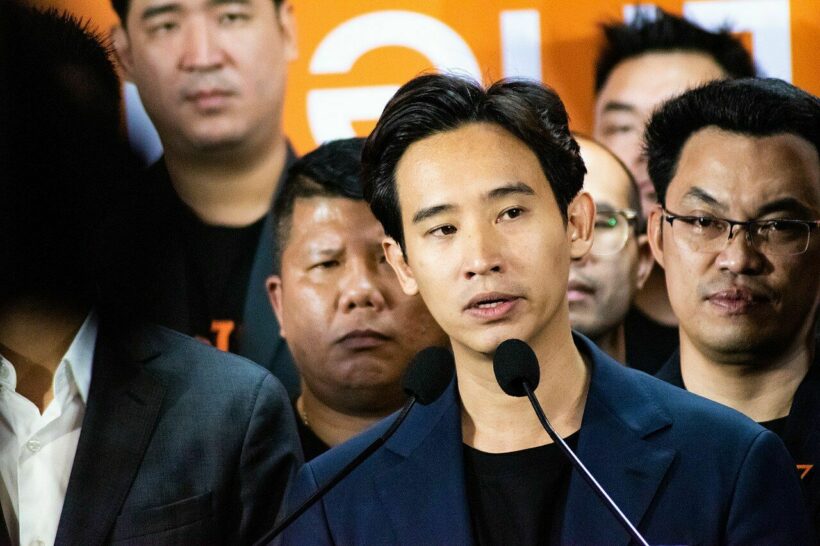PM Prayut’s 3 trillion baht budget slammed ‘pointless’ by MFP leader

Opposition Move Forward Party leader Pita Limjaroenrat has slammed PM Prayut Chan-o-cha’s spending plans ahead of tomorrow’s budget bill as “pointless.”
PM Prayut will defend the government’s 3.2-trillion-baht 2023 budget bill in a three-day House debate starting tomorrow, explain why the sum is so large and his spending plans for the fiscal year.
But the MFP leader landed the first blow prior to the debate saying his party could never approve a budget that does not support the nation’s economic recovery in the wake of the Covid-19 pandemic.
Pita believes the PM’s plans only address existing needs, and that only 30% of the budget is going toward the future management of the kingdom.
“It is pointless to pool more than 500 billion baht in the central budget, the largest portion of the entire bill, when up to 80% of that amount will fund the payment of pensions and healthcare costs of civil servants.
“The largest increase in budget allocation planned for the 2023 fiscal year will go to the state enterprises, such as the Bank for Agriculture and Agricultural Cooperatives, so that it can retrospectively pay a subsidy to farmers under a programme which had begun all the way back in 2008.”
The PM made public that around 79% of the allocation will go toward funding fixed expenses while the rest will finance investment projects, in a budget that is 85 billion baht higher than that of 2022.
Around 270 billion baht has been set aside for 265 projects aimed at reducing poverty in five core areas of development. Finance projects offering aid to the poor and vulnerable groups will be boosted to the tune of 173 billion baht, including the 13.4 million people who hold state welfare cards, 2.6 million disabled people, 2.6 million young children, and 880,000 people living with HIV/Aids.
Almost 18.2-billion-baht will be injected into the education sector to aid children in poor families and support costs associated with the 660,000 young children who attend day care centres across the country.
The universal healthcare scheme, which currently takes care of around 13.5 million Thais, will benefit from a 70.1-billion-baht investment.
Farmers will get help to reduce their production costs and improve irrigation, and there are plans to subsidise farmland by around 7.2 billion baht for the poor as well as improve access to running water for about 200,000 households in remote areas.
Lastly, around 2.2 billion baht has been set aside to fund projects to help those suffering serious social problems.
Source Bangkok Post
Latest Thailand News
Follow The Thaiger on Google News:


























